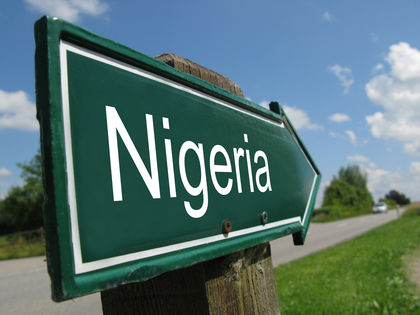By Ambassador Usman Sarki
The pursuit of foreign policy should be intricately and intrinsically linked to the attainment of a nation’s overall well-being. In Nigeria’s case it should be underlined that this fact becomes even more significant with the passage of time and the compounding of the challenges that the nation is faced with. Several problems some of existential nature have afflicted Nigeria over the years. They ranged from violent military takeovers of government, to a bloody civil war and subsequent problems of national security in the form of a prolonged terrorist insurgency and egregious violence as well as general insecurity in many parts of the country.
National reconstruction and the structuring of governance is an arduous and time consuming process that is often fraught with challenges of multiple dimensions. Constitutional civil democratic government becomes intricate and protracted when it is pursued within the constraints of multigenerational interests and conflicting demands about the purposes and tasks of the state and the government. In outlining a country’s foreign policy processes as well as priorities and programmes, attention should be paid to the limitations imposed by the internal contradictions, constraints and challenges that would invariably and inevitably pose some difficulties towards the attainment of the objectives of such policies.
The plethora of ideas, demands, interest and outlooks often conflicting with one another and seldom converging, that emanate from the domestic constituencies, will necessarily inform and influence the shaping of foreign policy of any country. As such attention should be paid to the domestic settings and assessments should be made about their importance or significance towards the crafting of our foreign policy from the infancy of the formulation process, to the mature stages of adoption and implementation. Strategies should be crafted around both the domestic ideas and the foreign objectives that would be pursued by the nation especially towards the identification and crystallization of those goals to be pursued and attained.
Subnational entities, political parties, civil society, other organised groups and the general population would need to be taken on board in a consultative process in which opinions and views could be gathered and filtered, while determinants of foreign policy could be sifted and crafted therefrom for wider acceptance and concurrence by the entire nation. The challenges of nation-building are therefore, the principal objectives that foreign policy should address and should seek to squarely confront from the perspectives of marriage of internal contradictions and external interests.
The amelioration of such challenges and the establishment of normalcy in the conduct of governance and general business of running a country efficiently should be the main preoccupation of Nigeria’s foreign policy. Foreign policy should also serve as a mirror of our cultural, spiritual and moral values, often to be demonstrated in our fair and honorable dealings and transactions with friends and foes alike. Approaches both aspirational and strategic, would therefore need to be evaluated and adopted, depending on their nexus with the attainment of the national interest. As such certain areas will need to be delineated and others reinforced as we proceed to analyse the elements that should form Nigeria’s national interest and core foreign policy determinants.
I believe the first elements of importance for Nigeria’s foreign policy should be those that would serve to reinforce the sovereignty and independence of the country, and its unity through the embracing of diversity as a means by which all constituent parts of the country could realise their legitimate aspirations and actualise their potentials as a people. These are critical in the sense that they foster a sense of innate purpose in the federation that we have agreed to establish and construct. Without such an outlook, there can be no determined commitment by the people to serve and protect the country at all costs and under all situations.
This should be the underlying factor in crafting of our foreign policy. Another objective is the attainment and elevation of the happiness of the people which should be manifested in the provision of a guaranteed status for their country as a respectable entity in the affairs of the world and among nations. The prestige of a country and the esteem that it automatically enjoys among its peers and associates, should be visible to its citizens when for example, they travel abroad. The mere sighting of a country’s passport should instill respect instead of aversion in the inspecting officials at the border entry posts such as airports.
Foreign policy should also instill a change of perception of a nation about itself. It should provide that nation a basis for comparison with other countries and peoples, in the trajectory of their development culturally, spiritually, socially, politically, economically, and in all other ways that form the sum total of human civilization. In this sense, foreign policy of a country should project a mirror image reflected through the prism of comparison with others for the purposes of understanding itself, and also deciding along which trajectory it should finally go to achieve its destiny.
The idea that nations are part of the whole of humanity should therefore; be followed by each nation by behaving in accordance with the expectations and norms of the international community. This will entail the observance of appropriate rules of conduct that have been agreed upon by common usage and established precedence. Observing the rules of the game so to speak, in the treatment of other nations will engender reciprocal exchanges that foster mutual trust, friendship and solidarity.
It is the duty of a country’s foreign policy therefore, to create the right conditions under which such reciprocal treatments could take place, and the sense of amity and concord could be achieved. In this sense, friendship should proceed from the realisation that nations are obliged to be good towards each other, and to ensure that situations and circumstances that would lead to disruption of their harmonious relationships are smoothed out as much as possible or even erased completely.
Foreign policy provides the basis for such outcomes that conduce towards better understanding between and among nations. The contributions to peaceful coexistence and the establishment of the grounds for mutual respect therefore proceed from the understanding that each country needs the other in terms of the advancement of their mutual interests and national objectives.
In this regard, the crafting of a nation’s foreign policy must proceed from the premises of the observance of international best practices and acceptable norms of behaviour. As such the grounds on which foreign policy should be predicated will be those of rule of law, mutual respect, recognition of those values that enhance the attachment to shared values and interests, as well as the abjuring of those intentions and actions that could be inimical to their interests and well-being.
Within these parameters, the aims and objectives of global governance can be attained by way of adherence to the principles and norms of international law and the Charter of the United Nations for example. Likewise, the aims of regional organizations like the African Union and ECOWAS can be advanced both practically and in principle. Of all government policies and projects, if there is any that can be conceived as a “designer made” project, it should be the foreign policy of a country.




























